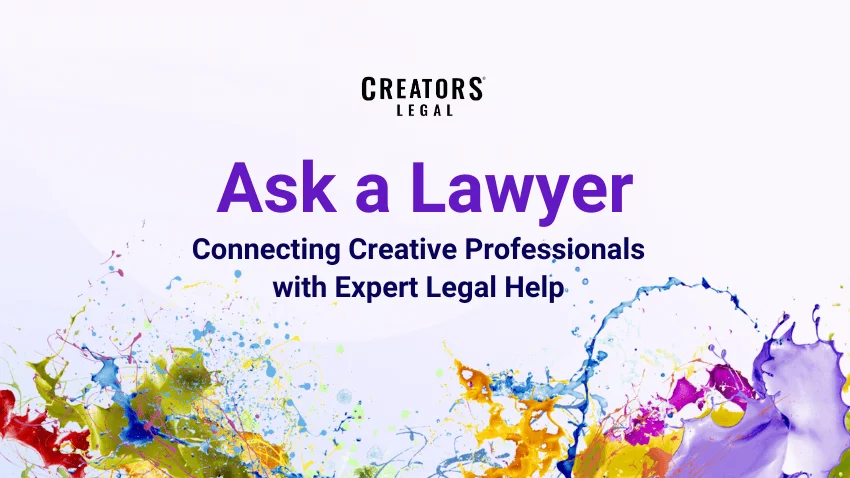As an independent musician, understanding musical contracts is crucial for your success in the industry. In this comprehensive guide, we will explore the various types of contracts you may encounter. Creators Legal can help you navigate the legal aspects without the need for expensive lawyers.
Key Takeaways
- Understanding musical contracts is essential for independent musicians to protect their interests and ensure fair compensation.
- Creators Legal is a do-it-yourself platform that provides legal assistance specifically tailored for creators, including independent musicians.
- Different types of music contracts, such as producer agreements and production agreements, have specific significance and implications for independent musicians.
- Music royalties, including mechanical royalties, performance royalties, synchronization royalties, and print music royalties. It plays a crucial role in an independent musician’s income.
- Music copyright is vital for independent musicians to protect their original songs from unauthorized use.
In this guide, we will cover all these essential aspects of musical contracts, royalties, and copyright. It equips you with the knowledge and understanding needed to thrive in the music industry. Let’s dive in!
Become One of 8,000+ Innovators Transforming the Future your Business!
Subscribe and access over 300 editable and downloadable contracts
The Importance of Musical Contracts for Independent Musicians

For independent musicians, having solid music contracts in place is not just a formality. It’s a vital step towards protecting your rights and ensuring fair treatment in the music industry. These contracts serve as legal agreements between artists, record labels, producers, and other parties. They outline the terms and conditions of the working relationship, including ownership rights, payment structures, and obligations of each party.
Without proper contracts, independent musicians may find themselves vulnerable to exploitation, copyright disputes, and financial losses. By establishing clear and comprehensive agreements, artists can safeguard their intellectual property. In this way they can retain control over their creative work, and secure fair compensation for their efforts.
One important aspect of musical contracts is the allocation of royalties, which are the earnings generated from the use and distribution of music. Understanding the different types of royalties, such as mechanical royalties, performance royalties, synchronization royalties, and print music royalties. This is crucial for independent musicians! Also, these royalties ensure that artists receive proper compensation for their contributions. For example, whether it’s through radio airplay, streaming platforms, live performances, or licensing deals.
Creators Legal it’s a Helping Hand for Independent Musicians

To navigate the complexities of musical contracts and royalties, independent musicians can turn to resources like Creators Legal. Creators Legal is the first and only do-it-yourself platform designed specifically for creators. It includes musicians, to obtain legal assistance without the need for expensive lawyers. With Creators Legal, artists can access customizable contract templates, legal advice, and educational resources to empower themselves in the music industry.
| Type of Royalty | Description |
| Mechanical Royalties | Earnings from the reproduction and distribution of music on CDs, vinyl, and digital downloads. |
| Performance Royalties | Earnings from public performances, such as live concerts, radio airplay, and streaming services. |
| Synchronization Royalties | Earnings from the use of music in TV shows, films, commercials, and other visual media. |
| Print Music Royalties | Earnings from the sale of sheet music and printed music scores. |
By recognizing the importance of musical contracts and understanding the intricacies of royalties, independent musicians can protect their creative work. It secures fair compensation, and forge a successful career in the highly competitive music industry.
Understanding Different Types of Music Contracts

As an independent musician, you may come across various types of musical contracts, including producer agreements and production agreements. Understanding these contracts is essential to protect your creative work and ensure smooth collaborations.
Producer agreements are contracts between musicians and producers, outlining the terms of their collaboration in the studio. These agreements cover important aspects such as rights, royalties, and creative control. They establish how the producer will be compensated and credited for their work. Besides, how the musician’s music will be produced and released.
Production agreements, on the other hand, are contracts between musicians and record labels or production companies. These agreements outline the terms of the production process, including:
- The responsibilities of each party
- The ownership of master recordings
- Distribution rights
- Royalty splits.
Production agreements are crucial for independent musicians looking to release their music and navigate the complexities of the music industry.
To help you better understand the nuances of these contracts, let’s take a closer look at each type:
Producer Agreements in Musical Contracts:
In a producer agreement, both the musician and the producer have important roles to play. The musician relies on the producer’s expertise and experience in shaping their sound and bringing their vision to life. The producer, in turn, contributes their skills and resources to enhance the quality and marketability of the music. It’s crucial to clearly define the rights and responsibilities of both parties, including the producer’s compensation, credit, and ownership rights.
Production Agreements:
A production agreement is typically entered into between an independent musician and a record label or production company. This contract sets out the terms of the production process, including the recording, mixing, and mastering of the music. It also covers the distribution and promotion of the music, as well as the financial aspects, such as advances, royalties, and recoupment. It’s important for independent musicians to carefully review and negotiate the terms of a production agreement. As a result, to ensure fair compensation and maintain creative control over their work.
Understanding these different types of music contracts is essential for independent musicians. In that way, they can protect their creative work and navigate the music industry successfully. By having a solid understanding of these contracts and seeking legal assistance when needed, musicians can ensure that their rights are protected, their collaborations are fair, and their careers can flourish.
Demystifying Music Royalties

Music royalties play a crucial role in ensuring that independent musicians are fairly compensated for their creative work. In this section, we will explore the different types of royalties and how they are calculated and distributed. Understanding these intricacies is essential for musicians looking to protect their rights and maximize their earnings.
The Different Types of Music Royalties
When it comes to music royalties, there are several types that independent musicians should be familiar with. These include mechanical royalties, performance royalties, synchronization royalties, and print music royalties. Let’s take a closer look at each one:
- Mechanical royalties: These royalties are generated from the reproduction of a musical composition in various formats, such as CDs, downloads, and streams. They are typically paid to the songwriter or publisher.
- Performance royalties: These royalties are earned when a musical composition is performed in public, either live or through mediums like radio, television, or streaming platforms. Performance rights organizations (PROs) collect these royalties on behalf of the songwriter and publisher.
- Synchronization royalties: These royalties are earned when a musical composition is synced with visual media, such as movies, TV shows, commercials, or video games. They are paid to the songwriter and publisher.
- Print music royalties: These royalties are earned from the sale of sheet music or lyrics of a musical composition. They are typically paid to the publisher.
The calculation and distribution of these royalties can vary depending on factors such as territory, usage, and agreements between parties involved. Independent musicians should familiarize themselves with the specific requirements and processes to ensure they receive their rightful share.
By understanding the different types of music royalties and how they are calculated and distributed, independent musicians can ensure they are fairly compensated for their creative work. It’s crucial to stay informed about the ever-changing landscape of the music industry. Additionally, to seek legal assistance, such as the services provided by Creators Legal, to navigate the complexities of musical contracts and royalties. With the right knowledge and support, musicians can protect their rights. Besides, maximize their earnings, and thrive in the competitive music industry.
The Role of Music Copyright

Securing music copyright is a fundamental step for independent musicians to safeguard their intellectual property and prevent others from using their songs without permission. Music copyright grants exclusive rights to the creator, protecting their original works from being copied, distributed, performed, or reproduced without authorization. By obtaining copyright protection, independent musicians gain legal control over their music, ensuring that they have the right to determine how their songs are used and monetized.
The Different Types of Music Copyrights
There are two main types of music copyright: composition copyright and sound recording copyright. Composition copyright refers to the protection of the musical composition itself, including the melody, lyrics, and arrangement. Sound recording copyright, on the other hand, covers the specific recording of a composition, preserving the unique rendition, performance, and production elements. It’s important for independent musicians to understand both types of copyright and obtain the necessary protections for their works.
A music copyright registration is a crucial step in establishing legal proof of ownership. It provides independent musicians with an official record of their copyright claims, which can be invaluable in case of copyright infringement or disputes. Registering copyrights also allows artists to collect royalties for the public performance, digital streaming, synchronization, and reproduction of their music.
The Role of Music Publishers
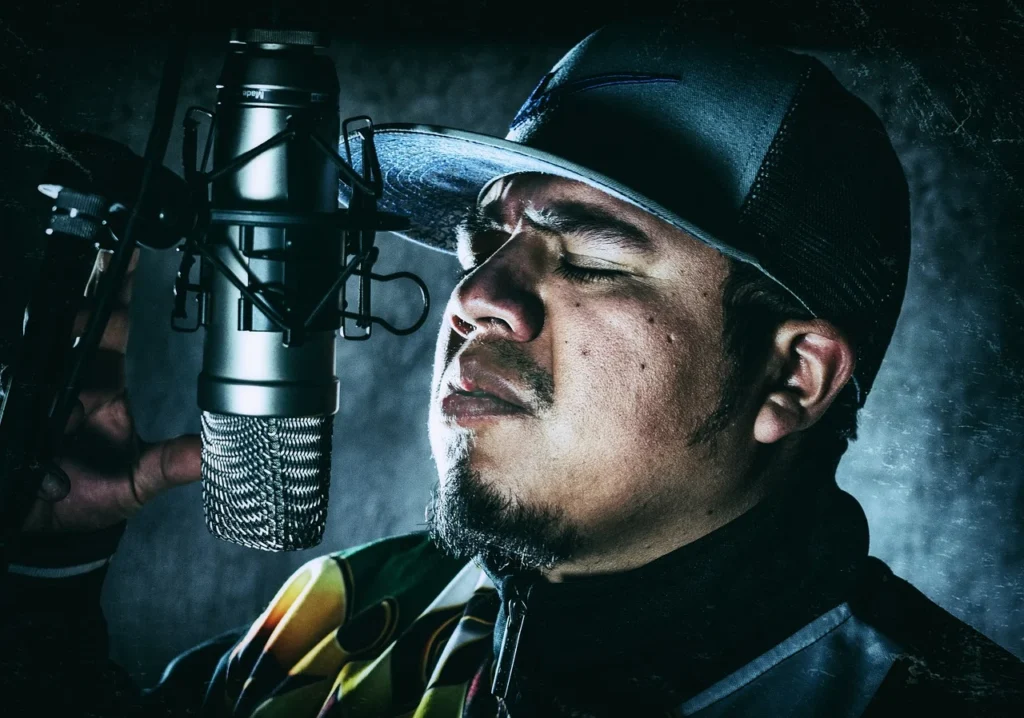
Music publishers play a significant role in the music industry, particularly for independent musicians seeking to maximize their earning potential. Publishers act as intermediaries between songwriters and music users, helping to exploit the commercial value of musical compositions. They handle licensing, synchronization, and royalty collection on behalf of the songwriter, ensuring that their music is properly monetized and distributed.
By partnering with a music publisher, independent musicians can benefit from the expertise and connections within the industry. Publishers can help secure placements for songs in films, television shows, and advertisements, opening up new revenue streams and increasing exposure. Additionally, publishers can negotiate favorable deals and licensing agreements, ensuring that independent musicians receive fair compensation for the use of their music.
Understanding Music Publishers
Music publishers play a vital role in the music industry, working closely with independent musicians to promote their songs, secure licensing opportunities, and collect royalties on their behalf. These professionals serve as an invaluable link between artists and the broader music market, helping to amplify their reach and ensure fair compensation for their creative work.
One of the primary responsibilities of music publishers is to actively promote the songs of independent musicians. They use their extensive network of industry contacts to pitch these songs to recording artists, music supervisors, and other professionals who may be interested in licensing them for various purposes, such as film, television, advertisements, or cover versions. By securing these licensing opportunities, publishers help independent musicians generate additional income and gain exposure to a wider audience.
Furthermore, music publishers are responsible for managing and collecting the royalties that independent musicians earn from the usage of their songs. This includes mechanical royalties, which are paid when a song is reproduced or manufactured, performance royalties, which are earned when a song is publicly performed, synchronization royalties, which are generated from the use of a song in film, TV, or commercials, and print music royalties, which are paid when sheet music is sold or licensed.
| Royalty Type | Description |
| Mechanical Royalties | Paid when a song is reproduced or manufactured |
| Performance Royalties | Earned when a song is publicly performed |
| Synchronization Royalties | Generated from the use of a song in film, TV, or commercials |
| Print Music Royalties | Paid when sheet music is sold or licensed |
To effectively manage these royalties, music publishers employ specialized systems and databases to accurately track and collect payments from various sources, including streaming platforms, radio stations, venues, and sheet music distributors. They ensure that independent musicians receive their rightful earnings and facilitate the complex process of royalty administration.
Maximizing Earning Potential

Working with a music publisher can significantly enhance an independent musician’s earning potential. Beyond their promotional and royalty collection efforts, music publishers can offer valuable guidance and support in navigating the music industry landscape. They have a wealth of experience and industry knowledge, which they share with independent musicians to help them make informed decisions and advance their careers.
Whether it’s negotiating licensing deals, protecting copyrights, or exploring new revenue streams, music publishers serve as trusted advisors who are invested in the success of independent musicians. Through their expertise and strategic guidance, they assist artists in maximizing their earning potential and building sustainable careers in the competitive music industry.
Creators Legal, the first and only do-it-yourself platform for creators to get fully legal without the need for expensive lawyers, can provide independent musicians with resources and tools to understand the role of music publishers and navigate the intricacies of music contracts effectively. By leveraging the support of music publishers and the assistance offered by platforms like Creators Legal, independent musicians can focus on their creativity, confident in the knowledge that their legal and business interests are being expertly managed.
The Process of Copyrighting Music

Copyrighting your music is a straightforward process that provides important legal protection for independent musicians. Here, we will walk you through the steps to copyright your songs effectively.
The first step in copyrighting your music is to create a tangible form of your work. This can be a recording, sheet music, or even written lyrics. By having a physical or digital copy of your music, you establish proof of your ownership and the date of creation.
Next, you can register your copyright with the United States Copyright Office. This step is not mandatory for copyright protection, as your work is automatically protected upon creation. However, registering your copyright provides additional benefits, such as the ability to sue for infringement and the opportunity to collect statutory damages.
To register your copyright, you can visit the official website of the United States Copyright Office and fill out the necessary forms. There is a small fee associated with the registration process.
“Copyrighting your music is an essential step for independent musicians. It provides legal protection and ensures that you have control over how your music is used. Don’t neglect this important aspect of your music career.” – John Smith, Independent Musician
Once you have completed the registration process, you will receive a copyright certificate. This certificate serves as official documentation of your ownership and can be used as evidence in case of any legal disputes.
Conclusion About Musical Contracts

Copyrighting your music is a crucial step in protecting your artistic creations and ensuring that you have control over their use. By following the steps outlined above, independent musicians can confidently establish their ownership rights and safeguard their work. With the right legal foundation, musicians can focus on pursuing their passion and building a successful career in the music industry.
Negotiating Musical Contracts: Securing Fair Deals for Independent Musicians
Negotiating music contracts can be a daunting task for independent musicians, but with the right knowledge and strategies, you can secure fair deals that align with your creative vision and goals. In this section, we will explore key tips and insights to help you navigate the intricacies of musical contracts and protect your interests.
Know Your Worth: Research and Preparation
Before entering into any contract negotiation, it is crucial to understand the value of your work and the current market standards. Research similar artists and their contracts to gain insights into what terms and compensation are reasonable. This will empower you to negotiate from a position of knowledge and ensure you are being fairly compensated for your contributions.
Furthermore, it is vital to be prepared with a clear understanding of your rights and obligations as an independent musician. Familiarize yourself with different contract clauses and their implications, such as exclusivity, royalty splits, and ownership rights. This knowledge will help you identify potential pitfalls and negotiate favorable terms.
Seek Professional Guidance When Needed
While independent musicians may not have the resources to hire expensive lawyers, it is essential to seek professional guidance when necessary. This is where Creators Legal comes in. As the first and only do-it-yourself platform for creators, Creators Legal provides an accessible and affordable solution for legally sound contracts. With their customizable contract templates, you can ensure your agreements protect your rights and meet industry standards without breaking the bank.
Collaborating with legal experts ensures that your contracts are comprehensive, binding, and tailored to your specific needs. By leveraging the expertise of professionals, you can navigate the legal intricacies of the music industry with confidence, maximizing your chances of securing fair and beneficial deals.
To summarize, negotiating music contracts may seem overwhelming. But with careful research, preparation, and professional guidance when needed, independent musicians can protect their interests and secure fair deals. Creators Legal is here to support you throughout this process. We provide the tools and knowledge you need to navigate the complex world of musical contracts successfully.
| Tips for Negotiating Music Contracts: |
| 1. Do your research: Understand the market standards and the value of your work. |
| 2. Be prepared: Familiarize yourself with contract clauses and their implications. |
| 3. Seek professional guidance: Utilize resources like Creators Legal for accessible and affordable legal assistance. |
| 4. Protect your rights: Ensure your contracts are comprehensive, binding, and tailored to your needs. |
Common Pitfalls in Musical Contracts
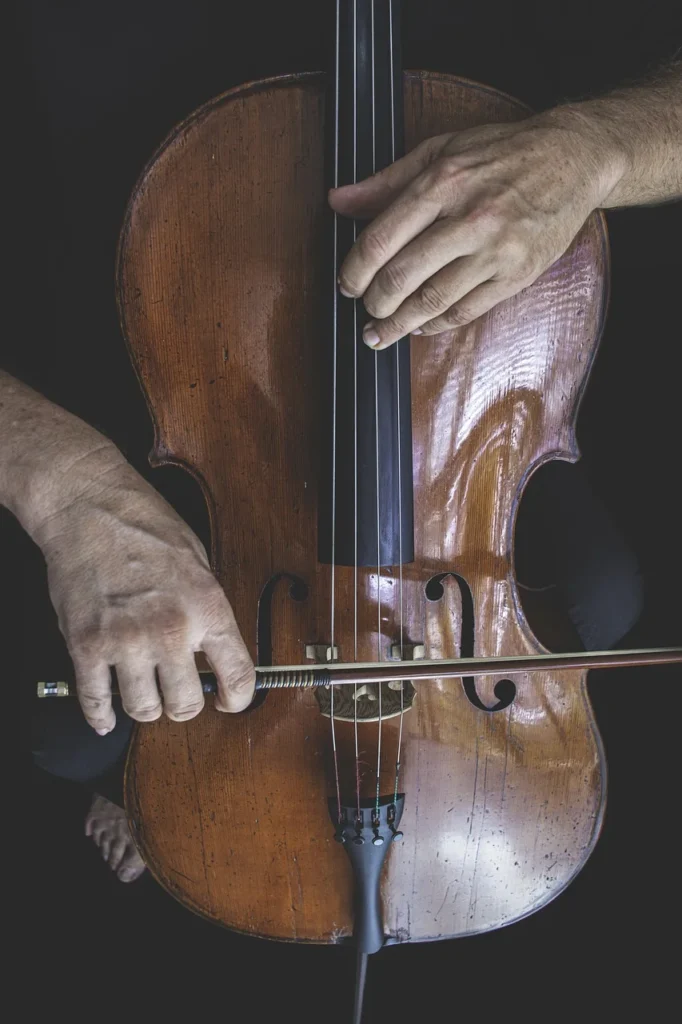
It’s important for independent musicians to be aware of common pitfalls that can lead to a loss of rights, unfair compensation, and legal disputes. In this section, we will identify these pitfalls and offer insights on how to navigate them. One common pitfall in music contracts is a lack of clarity in terms and conditions.
Contracts that are vague or open to interpretation can create confusion and disputes down the line. To avoid this, independent musicians should ensure that all terms are clearly defined and agreed upon by all parties involved. It’s also important to seek legal advice or use a platform like Creators Legal that specializes in providing do-it-yourself legal assistance for creators. Another pitfall to watch out for is a lack of protection for intellectual property rights.
Music Contracts and Copyrights Ownership
Musical contracts should clearly outline ownership of copyrights and provide measures to protect the musician’s original work from unauthorized use. This includes specifying how royalties will be paid and how the musician’s work can be used in different contexts, such as in films or advertisements.
Additionally, independent musicians should be cautious of contracts that contain unfair or one-sided clauses. It’s important to carefully review and negotiate contracts to ensure that they are fair and equitable for all parties involved. This may involve seeking the assistance of a legal professional or using a platform like Creators Legal that offers resources for negotiating contracts. By being aware of these common pitfalls, independent musicians can navigate the complex world of music contracts with confidence.
Platforms like Creators Legal can provide the necessary tools and guidance to help musicians stay fully legal without the need for expensive lawyers. To summarize, independent musicians must be vigilant in understanding and navigating the common pitfalls in musical contracts. Clear and well-defined terms, protection of intellectual property rights, and fair clauses are crucial for a secure career in the music industry. By utilizing resources like Creators Legal, musicians can protect their rights, ensure fair compensation, and avoid legal disputes.
Legal Assistance for Independent Musicians
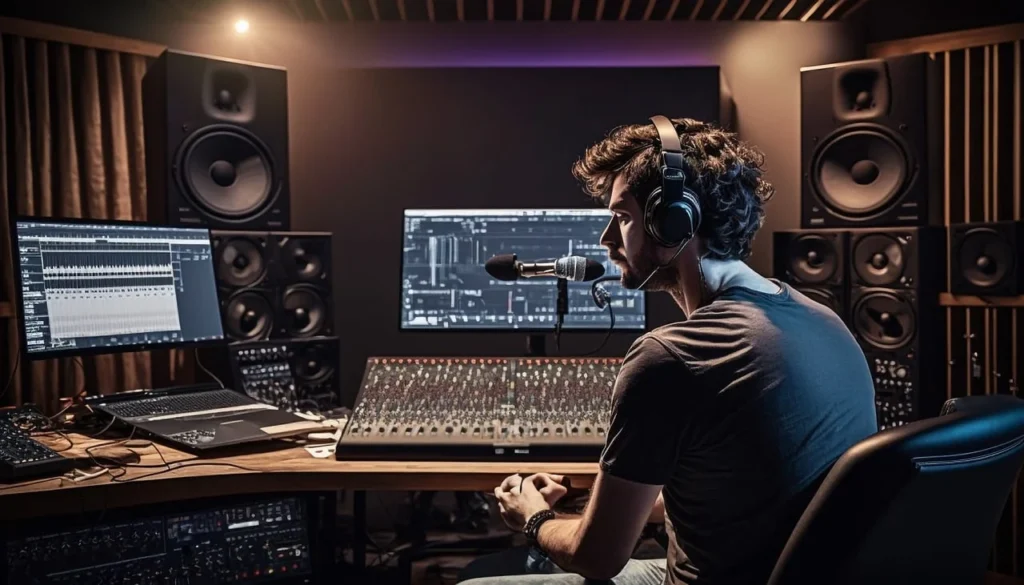
Creators Legal is revolutionizing the way independent musicians access legal assistance. With their intuitive do-it-yourself platform, you can get the legal support you need without breaking the bank. Gone are the days of expensive lawyers and complicated contracts. Creators Legal is designed specifically for independent musicians, offering a range of affordable and easy-to-use tools to help you navigate the legal aspects of the music industry.
Whether you’re just starting out or have been in the game for years, having a solid legal footing is crucial for success. Creators Legal understands the unique challenges faced by independent musicians. it also provides comprehensive resources to help you protect your rights and interests. From music contracts and copyright registration to understanding royalties and negotiating deals, Creators Legal has you covered.
A Do-It-Yourself Approach to Legal Assistance

Creators Legal’s do-it-yourself platform empowers independent musicians to take control of their legal journey. With step-by-step guides, customizable templates, and expert advice, you can confidently handle your legal matters without the need for expensive lawyers. The platform is user-friendly and accessible, ensuring that even those with no legal background can easily navigate the process.
Moreover, Creators Legal offers ongoing support and updates to keep you informed about changes in the music industry. They understand that the landscape is constantly evolving, and they’re committed to helping you stay ahead. By leveraging their resources and expertise, you can focus on what you do best – creating music – while knowing that your legal needs are taken care of.
| Benefits of Creators Legal | Why Choose Creators Legal? |
| ✓ Affordable and accessible | ✓ Designed specifically for independent musicians |
| ✓ Do-it-yourself platform with step-by-step guides | ✓ User-friendly and intuitive interface |
| ✓ Comprehensive resources and customizable templates | ✓ Ongoing support and updates |
| ✓ Expert advice and guidance | ✓ Stay ahead with industry knowledge |
Don’t let complex legal issues hold you back. With Creators Legal by your side, you can confidently navigate the world of musical contracts and royalties. In that way, you can protect your original creations, and build a successful career as an independent musician.
Staying Informed about Music Industry Updates

The music industry is constantly evolving, with new laws, regulations, and trends shaping the landscape. As an independent musician, staying informed about these updates is crucial to protect your rights and seize opportunities. From changes in copyright laws to updates on royalty regulations, keeping up-to-date with the latest industry news and developments can make a significant difference in your career.
One way to stay informed is by regularly visiting reputable music industry websites and blogs. These platforms often publish articles and updates on various topics, including legal changes, emerging trends, and industry insights. Subscribing to their newsletters can ensure you receive timely updates directly in your inbox, saving you time and effort in seeking out the information yourself.
Another valuable resource is joining professional organizations and associations that cater to independent musicians. These organizations often provide their members with exclusive access to industry news, educational resources, and networking opportunities. By becoming a member, you can stay informed about the latest industry updates while connecting with like-minded individuals and expanding your professional network.
Industry Events and Conferences

Attending industry events and conferences can also be an excellent way to stay informed about music industry updates. These events often feature panels, workshops, and keynote speakers who provide valuable insights into the current state of the industry. Take advantage of these opportunities to learn from industry experts, network with fellow musicians, and gain a deeper understanding of the ever-changing music landscape.
Lastly, leveraging online platforms and social media can also help you stay informed. Follow industry influencers, artists, and organizations on social media platforms like Twitter and LinkedIn for real-time updates and discussions. Engage in conversations, ask questions, and participate in online forums and groups dedicated to independent musicians. These platforms can provide you with a wealth of knowledge and help you stay ahead of the curve.
| Key Tips for Staying Informed |
| Regularly visit reputable music industry websites and blogs |
| Join professional organizations and associations for independent musicians |
| Attend industry events and conferences |
| Follow industry influencers, artists, and organizations on social media |
By staying informed about music industry updates, you can stay on top of legal changes, industry trends, and emerging opportunities. This knowledge will empower you to make informed decisions, protect your rights, and navigate the complex world of music contracts and royalties more effectively. Remember, knowledge is power, and by staying informed, you are setting yourself up for long-term success in the music industry.
The Future of Independent Musicians

Independent musicians are at the forefront of innovation in the music industry, embracing new technologies and distribution models. In this section, we will discuss the exciting future that awaits independent musicians and how they can thrive in a rapidly evolving landscape.
As streaming services continue to dominate the music consumption landscape, independent musicians have the opportunity to reach a global audience like never before. With platforms like Spotify, Apple Music, and YouTube, independent artists can showcase their talent and connect directly with fans worldwide. This shift has disrupted the traditional music industry model, allowing independent musicians to have complete control over their creative output and career trajectory.
The rise of social media has also been a game-changer for independent musicians. Platforms like Instagram, TikTok, and Twitter provide a powerful tool for self-promotion, allowing artists to build a loyal fan base and generate buzz around their music. By leveraging these platforms, independent musicians can engage directly with their audience, fostering a strong and personal connection that can lead to increased support and opportunities.
Furthermore, the future of independent musicians is also bright with the emergence of innovative revenue streams. Beyond traditional music sales and performance royalties, artists can explore avenues such as merchandise sales, brand partnerships, sync licensing, and crowdfunding to sustain their careers. These alternative revenue streams provide independent musicians with greater financial stability and the freedom to pursue their artistic visions.
Wrap it Up
In conclusion, the future of independent musicians is filled with promise and limitless potential. With the right combination of creativity, determination, and adaptability, independent musicians can carve a successful career path in an industry that is constantly evolving. By staying informed, leveraging technology, and embracing new opportunities, independent musicians can continue to shape the future of music and thrive in an ever-changing landscape.
| Key Takeaways: |
| Independent musicians are at the forefront of innovation in the music industry. |
| Streaming services and social media platforms offer new opportunities for independent musicians to reach a global audience and connect with fans directly. |
| Alternative revenue streams, such as merchandise sales and sync licensing, provide increased financial stability for independent musicians. |
| The future of independent musicians relies on their ability to stay informed, adapt to new technologies, and embrace emerging opportunities. |
Building a Successful Career as an Independent Musician
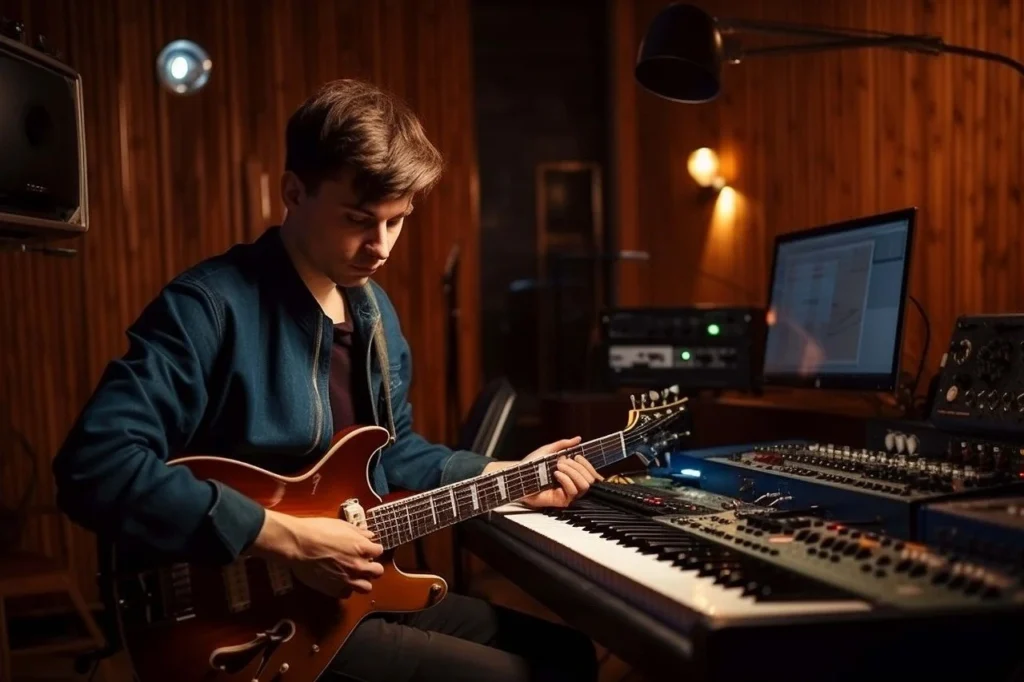
Building a successful career as an independent musician requires more than just talent; it requires a strategic approach and a deep understanding of the music industry. In this section, we will share valuable tips and insights to help you navigate your path to success.
One of the first steps in building a successful career as an independent musician is to establish a strong brand identity. This includes defining your unique sound, image, and style. It’s important to develop a cohesive brand that resonates with your target audience and sets you apart from the competition. This can be achieved through consistent branding across all your online and offline platforms, including your website, social media profiles, and promotional materials.
In addition to branding, self-promotion is crucial for gaining visibility and reaching a wider audience. Utilize digital platforms, such as streaming services and social media, to share your music and engage with fans. Collaborate with other musicians and industry professionals to expand your network and open doors to new opportunities. Remember, building a successful career is not just about talent; it’s about building relationships and leveraging your connections.
Stay Informed about the Newest Trends
It’s important to stay informed about the latest trends and changes in the music industry. Keep an eye on music industry publications, attend conferences and seminars, and join industry organizations. This will help you stay ahead of the curve, adapt to industry shifts, and make informed decisions about your career.
| Tips for Building a Successful Career as an Independent Musician |
| 1. Harness the Power of Digital Marketing: Use social media, email marketing, and online advertising to promote your music and engage with your fans. |
| 2. Network, Network, Network: Attend industry events, collaborate with other musicians, and build relationships with professionals who can help further your career. |
| 3. Stay Informed: Keep up with industry news, trends, and changes in copyright and royalty regulations to protect your rights and maximize your earning potential. |
| 4. Embrace DIY Legal Solutions: Utilize platforms like Creators Legal to navigate the legal aspects of the music industry without the need for expensive lawyers. |
By adopting a proactive and informed approach, you can increase your chances of building a successful career as an independent musician. Remember, it takes time, dedication, and perseverance. With the right strategy and mindset, you can turn your passion for music into a thriving career.
Leveraging Musical Contracts for Growth

Music contracts are not just legal documents. They can be powerful tools for independent musicians to unlock new opportunities. They also build partnerships, and propel their career to new heights. By understanding the intricacies of musical contracts, independent musicians can create a solid foundation for long-term success in the industry. Whether it’s securing fair compensation, protecting their intellectual property, or expanding their network, leveraging music contracts is essential for career growth.
One of the key ways to leverage musical contracts is by using them to establish partnerships with other industry professionals. Collaborating with producers, songwriters, and publishers can help independent musicians expand their reach, tap into new markets, and access resources that may not be available to them alone. A well-crafted production agreement, for example, can outline the roles and responsibilities of each party, establish clear royalty splits, and ensure that everyone’s interests are protected.
Another way to leverage music contracts is by utilizing them to secure licensing deals. Licensing your music for use in films, commercials, or TV shows can provide exposure to a wider audience. Plus, generating additional revenue streams. By negotiating favorable synchronization and performance royalty terms in licensing agreements, independent musicians can maximize their earning potential and gain valuable exposure in the highly competitive music industry.
Furthermore, musical contracts can be utilized to solidify strategic partnerships with music publishers. Working with a reputable publisher can open doors to opportunities for placements in films, TV shows, or commercials. As well, as provide access to professional marketing and promotional resources. A carefully crafted publishing agreement can define:
- The scope of the partnership
- Establish royalty structures
- Protect the rights of the independent musician.
Table: Essential Elements of a Music Contract
| Element | Description |
| Parties Involved | Clearly identify the parties entering into the contract, including names, contact information, and roles. |
| Scope of Work | Specify the nature of the collaboration or services to be provided, such as songwriting, production, licensing, or publishing. |
| Compensation | Outline the financial arrangement, including royalty splits, advance payments, and any additional fees. |
| Term and Termination | Define the duration of the agreement and the circumstances under which either party can terminate the contract. |
| Intellectual Property Rights | Address ownership, copyright, and licensing rights to ensure the protection and fair use of creative works. |
| Dispute Resolution | Include provisions for resolving conflicts or disputes that may arise during the course of the agreement. |
Whether it’s collaborating with industry professionals, securing lucrative licensing deals, or forming strategic partnerships with publishers, independent musicians can leverage musical contracts to propel their career growth. By Creators Legal, independent musicians can navigate the legalities of the music industry.
Conclusion

In conclusion, music contracts are essential for independent musicians to protect their rights. On other words, ensure fair compensation, and navigate the complexities of the music industry. With Creators Legal, you have a powerful tool at your disposal to get fully legal without the need for expensive lawyers. Take control of your music career and embrace the opportunities that await you.
A complete guide to musical contracts covers various types of agreements, such as producer agreements and production agreements. It emphasizes the importance of having a solid legal footing in the music industry. Plus, provides information on the different types of royalties, including mechanical royalties, performance royalties, synchronization royalties, and print music royalties. It also discusses how these royalties are calculated and paid out.
Additionally, the guide explains the different types of music copyright, the role of publishers, and the process of copyrighting music. Overall, the guide aims to help musicians understand and navigate the complex world of musical contracts and royalties. Having a solid understanding of music contracts and legalities is crucial for your long-term success.
With Creators Legal, you can access a do-it-yourself platform that provides comprehensive legal assistance tailored specifically for creators. This innovative platform eliminates the need for expensive lawyers and puts the power in your hands. From contract templates to expert guidance, Creators Legal has your back every step of the way. Don’t let legal complexities hold you back from pursuing your passion. Get fully legal with Creators Legal and embark on a successful and fulfilling music career.
FAQ

What types of musical contracts are covered in this guide?
This guide covers various types of music contracts, including producer agreements and production agreements.
What are the different types of royalties discussed in this guide?
This guide explains the different types of royalties, including mechanical royalties, performance royalties, synchronization royalties, and print music royalties.
How are music royalties calculated and paid out?
This guide provides information on how music royalties are calculated and paid out.
What is the role of music publishers in the industry?
This guide explains the role of music publishers in the industry and how they can support independent musicians.
How can independent musicians copyright their music?
This guide provides a step-by-step guide on how independent musicians can copyright their music.
What are some common pitfalls in music contracts?
This guide highlights common pitfalls and traps to watch out for in musical contracts.
How can independent musicians negotiate music contracts?
This guide offers tips and advice on negotiating musical contracts.
How can independent musicians get legal assistance?
By using Creators Legal as a platform to get legal assistance without the need for expensive lawyers.
Why is it important for independent musicians to stay informed about music industry updates?
Because emphasizes the importance of staying informed about music industry updates. Also, to protect the rights and interests of independent musicians.
What opportunities and challenges lie ahead for independent musicians in the future?
This guide explores the future of independent musicians and the opportunities and challenges they may face in an ever-changing music industry.
What tips and insights are provided for building a successful career as an independent musician?
This guide provides practical tips and insights on building a successful career as an independent musician. It includes strategies for self-promotion, networking, and leveraging digital platforms.
How can independent musicians leverage music contracts for career growth?
This guide discusses how independent musicians can leverage musical contracts to fuel their career growth. In the same way, expand their opportunities, and secure long-term success.
What is the importance of music contracts for independent musicians?
This guide emphasizes the importance of musical contracts for independent musicians, highlighting the need for legal protection and fair compensation.
Why is Creators Legal mentioned in this guide?
This guide mentions Creators Legal as a valuable resource for navigating the legal aspects of the music industry.
